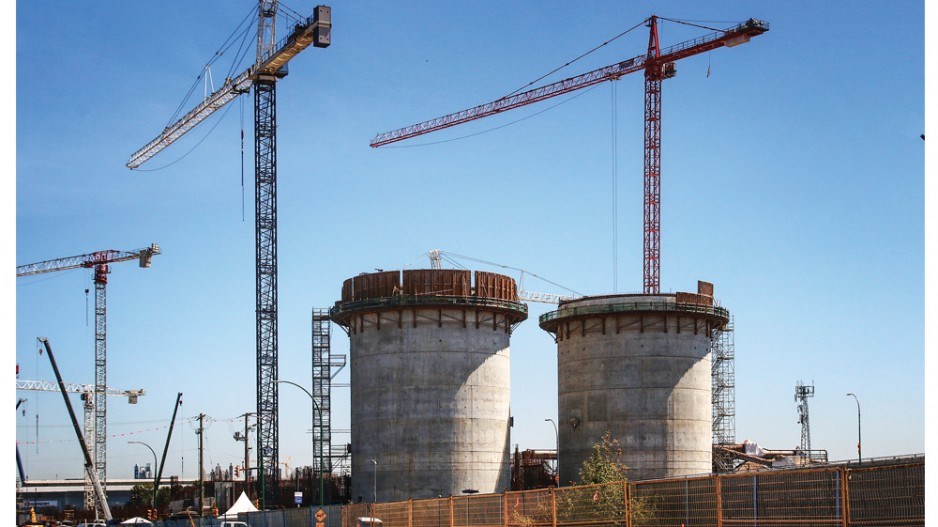Recent deals between the Metro Vancouver Regional District and private contractors could help restart construction of the long-stalled and over-budget North Shore Wastewater Treatment Plant project.
With the project’s price tag now pegged at $1.058 billion, its cost overruns now top $300 million, but the final price tag and completion date are unknown.
Late last month, however, the region inked a $40 million deal with PCL Constructors Westcoast Inc. to finalize a design for a facility that broke ground four years ago. And on March 9, the region’s liquid waste committee voted to name project engineer Aecom Canada Ltd. as the design consultant in a move that could lead to construction resuming in summer.
Cheryl Nelms, general manager of project delivery for Metro Vancouver, told the committee that the $15 million amendment for Aecom is the first phase of a contract that could cost as much as $60 million.
The moves essentially take Metro Vancouver back to Square 1.
Planning for the project began decade ago and was approved in 2014 subject to federal government funding.
Over the next four years, the Metro Vancouver Regional District worked on securing those grants, concluding funding agreements and getting the project ready for procurement. By 2017 a contract was awarded.
Originally, the project, with a price tag of $700 million, was slated for completion in December 2020 when the Canadian arm of the Spanish engineering conglomerate Acciona won the design-build-finance contract in 2017.
But as shovels hit the ground, problems began for Acciona. Right off the bat, the design for the facility was complicated, Nelms admitted in a presentation. The site’s relatively small size and proximity to railway lines and the North Shore waterfront created challenges for the contractor that were exacerbated by an aggressive construction schedule required to comply with updated federal wastewater regulations.
In 2019, construction was halted when a stop-work order was issued after Acciona terminated its leading geotechnical engineering contractor, Tetra Tech. Metro Vancouver and Acciona were subsequently sued for $20 million by the contractor for wrongful termination.
That would not be the only disruption for the plant in 2019. Later that year, environmental activists raised concerns about the harm biosolids would have on water systems and wildlife. As a result, the plant’s design was changed to include tertiary sewage treatment. That added $29 million to project costs. The project’s scope had also expanded to include a heat recovery plant and heat distribution piping, and its cost had ballooned to $778 million.
Finally, after navigating through lawsuits and suffering delays and extra costs, the parties agreed to extend the contract term an extra two-and-a-half years, which pushed the completion date back to 2023.
However, COVID-19 threatened to eliminate any hopes of 2020 being a better year for the project than 2019.
On September 29, 2021, 50 workers showed up to the site, a fraction of the usual crew of 300. Metro Vancouver was taken by surprise and a few days later announced that Acciona had all but abandoned the project.
A week later, citing schedule delays and cost overruns, it informed Acciona that it intended to terminate the contract. Acciona snapped back in a statement that it had completed $100 million of work for which it had not been paid and that layoffs were part of a streamlining process to focus on the core projects.
Metro Vancouver cut ties with Acciona in October 2021, throwing the beleaguered project back into limbo. •
– With files from Bob Mackin



